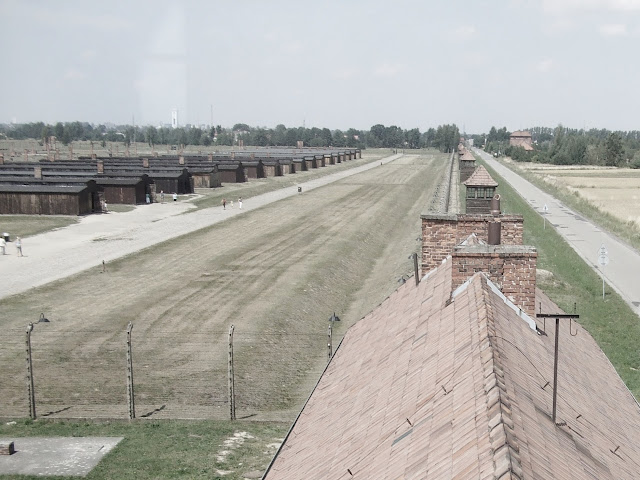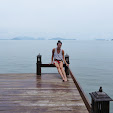There are some things where you can't see the full spectrum until you view it through the right prism. This is particularly relevant when it comes to confronting horrors of recent history, when the tragic details are familiar to us all yet abstracted by the passage of time or sentimentalised cinematic portrayal. The circumstances around my visit to Auschwitz were not especially conducive to introspection either, being at the tail end of a three-day school trip to the Polish city of Krakow and most people were more looking forward to getting drunk in the hotel that evening. But it moved me nonetheless.
Someone said to me once that birds do not sing in Auschwitz. I can't remember noticing one way or another. I do remember that it was a beautiful sunny day, and that I was angry that the weather should be so pleasant on such a sombre occasion, in no small part because as we walked across the grounds various students in our group began speculating what they might do with the rest of their day. I also recall that it wasn't the iconic images that made my blood run cold - not the ominous train tracks leading up to the camp, not the bitterly ironic sign 'Arbeit Macht Frei' - but the glass cases containing the items that had been taken from the people brought here. Shoes, an enormous pile of them, modern-looking enough to hit home how recently this all happened; and so many pairs of glasses, that made me imagine families packing their things and ensuring they brought their essential items, only to be stripped and dehumanised on arrival. These are the pictures that flash into my mind when I think of Auschwitz. That, and the tiny cell in which dissidents were placed in solitary confinement, unable to fully extend their bodies and deprived of light. In the years since seeing that, I have never been able to spend long in a room with a low-ceiling, and the basement level kitchens of old English country houses cause me anxiety.
It is important to make ourselves uncomfortable when we think about these things. I recently read Elie Wiesel's memoir Night, recounting his time incarcerated at Auschwitz and the death marches that preceded liberation. His tone is detached compared to the high drama we are used to seeing in cinematic accounts of the Holocaust. He describes horrific sights, including the death of his father so close to the end of their nightmare, with a hollow voice, because the unimaginable awfulness of his experiences does not require linguistic tricks to invoke empathy. It is short, and harrowing, and incredibly important. Reading has always been my greatest passion, since childhood, and having not been able to travel for a while it is the most challenging and fulfilling pastime currently available to me. Literature, like travel, has the ability to lift us from our own experiences and open our eyes to a different worldview, and in some cases it is more effective. For me, visiting Auschwitz engendered sympathy, but reading Night grew empathy within me, to the extent that my heart would ache when I put the book down. It is incredible, and painful, and I cannot recommend it enough.







No comments:
Post a Comment